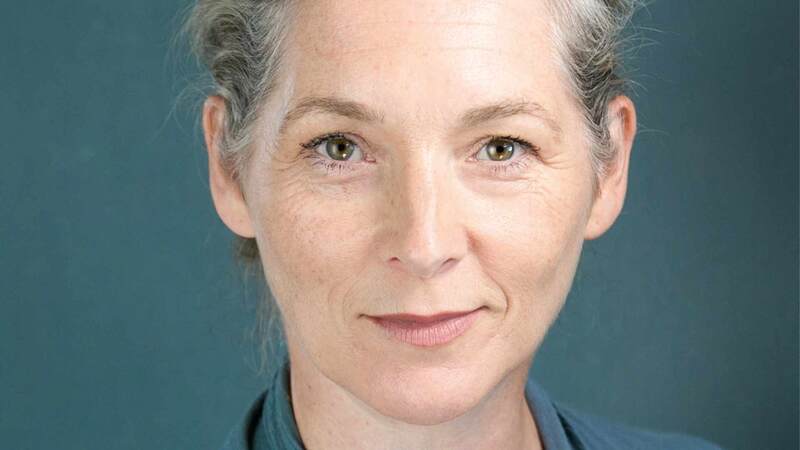You are viewing your 1 free article this month. Login to read more articles.
Publishing staffers say age is a workplace issue
Claims are being made of a “thinning out” of older staffers in publishing, with a lack of programmes to upskill older workers, a falling-off of respect for those with decades of industry experience, and vulnerability to cost-cutting redundancies all being cited as possible reasons for the change.
It’s an area with frustratingly few sources of solid data. The Publishers Association is yet to compile an industry survey on workforce demographics, and few of the major publishing houses are prepared to make their own figures public. That leaves the grumbles and speculation to flourish. However an influx of junior, digital-savvy recruits, a new generation of youthful m.d.s, plus a raft of exits by editors and executives aged 50-plus, has left many believing it is now seen as undesirable to be an older worker, in the big publishing houses at least.
“How many people over 60 work in these organisations, and where are they?” asked a former senior staffer who preferred to speak anonymously. “Are they so rich that they can just decide to stop working? You can’t get your pension until you are 67, yet it seems like organisations don’t want you hanging around. It is difficult for young people getting on the housing ladder, but it is also difficult for other people at the other end of the spectrum—it [the finance] doesn’t stack up for them either.”
Agent Clare Alexander of Aitken Alexander is prepared to put her head above the parapet. “Obviously by talking about it at all, I’m drawing attention to the fact I’m over 60, and the fact I feel hesistant is a sign that it’s an issue,” she said. “Why should I be concerned? It’s simply not an issue when I talk to my American friends. The heads of houses in the US [such as Knopf’s 70-something chairman and editor-in-chief Sonny Mehta] are still older than me, I can feel quite an ingenue in their company. But I am very aware my peer group in UK publishing is disappearing. Some are going to three-day weeks, some are retiring, some are being pushed out. Why is US publishing not pushing people out, and British publishing is?”
She added: “Publishers are talking a lot about diversity and how important it is. I endorse it, of course. But there isn’t diversity of age. (Hodder & Stoughton consultant editor) Roddy Bloomfield is in his 80s, (MacLehose Press publisher) Christopher MacLehose is in his 70s—wonderful examples, but where’s the rest? Something’s gone wrong here... I love having the energy of young people around me—I don’t feel ready to be the oldest person in the room.”
A senior figure in a major publishing house spoke anonymously on the change in attitudes. “It’s a cultural shift. When I was a young editor, a lot of people were ancient, and you felt they had wisdom and experience. There was not so much taking us for idiots. There’s not a great respect for history or the lessons of the past at the moment either. Now if I say, ‘What do you mean, you haven’t heard of the prime minister two PMs before last?’, they just say, ‘Before my time.’”
The figure added: “Some editors in their mid-50s just feel that they are getting to be more and more the only over-50 person in their editorial team, so they are deciding they would like to be a literary agent, or work from home more. When we were all sitting in our [separate office] booths [you could be any age]. What’s changed is the open-plan office. You can be visibly surrounded by younger people talking about the same things, about their weekends, and you’re aware you are not part of it.”
Dan Franklin stepped back from the role of publishing director at Jonathan Cape only last year, at the age of 66, and continues to work a part-time week as associate editor with his raft of stellar authors. Asked about the wider industry environment, he said: “I agree there is a bias towards youth at the moment, but that seems somehow inevitable in a world that has embraced the new world of social media so totally, while the old channels for promoting books (literary pages, Midweek etc) are disappearing. That said, of the sort of books I publish, I think it would be an interesting experiment to have a publishing house made up of elderly, experienced people and see what happened. I think they might do rather well, though their metadata would be very poor indeed.”
Lack of data
Fiona Swarbrick, books organiser of the National Union of Journalists, believes there is an issue for older workers in publishing, although she does not have the back-up of a full survey to guide her. “People who are older are more likely to have joined the company when it was unionised, or operating in a jobs market that was more buoyant, more weighted towards employees. Inevitably when it comes to ‘times are hard’, if you are on a disproportionately high salary, you stick out like a sore thumb [making you a candidate for redundancy]. Older people are acutely aware of it,“ she said.
“The areas of employee expansion have been about the digital platforms, and it’s sad that no one is doing a serious job of upskilling senior staff—taking people who are reliable and know the products, and giving them extra skills—rather than just ditching them, and taking on young people with brilliant tech skills but not as savvy with brand knowledge and market expertise. It’s a missed opportunity. You end up acting as if older people can’t learn new stuff—of course they can.”
One-time Constable sales director Andrew Hayward has since reinvented himself at Ether Books, which handles short stories for mobile phones, as well as developing his own small literary agency. He urged a pragmatic approach for 50-plus workers who have to start over. “In sales and marketing, the whole model has totally changed. If people still have a passion and are prepared to develop new skills, they can find a niche. Networking, networking, networking—get out there and meet people, and you’ve got a sea of people you can call on, who can give you jobs. Some people are very quiescent. Keep your ears and eyes open. For those made redundant in their 50s, it’s in the mind. You don’t have to be a wage slave any more, it’s freedom!”
HarperCollins, Simon & Schuster and Hachette declined to release details on the age breakdown of their workforce. However, Penguin Random House UK and Pan Macmillan were prepared to provide some information.
PRH UK HR director Val Garside said the company's workforce was split roughly 50/50 between over-40s and under-40s in both its publishing arm and its distribution business. Nearly 200 employees at the company have been there more than 20 years. “The key thing is the expansion of age ranges across the workplace,” said Garside. “We have four generations—Baby Boomers [1946-64], Generation X [1965-76], Generation Y, the Millennials [1977-95], and Generation Z [1996 and later]. It’s brilliant the young can draw on colleagues who are experienced and well-known in the industry. Equally, the experienced staff will say they learn a lot from, and are energised by, the younger generation coming through.”
PRH’s benefits package can be flexed by individual employees to meet the needs of different life stages, and any employee with a specific need is able to access the development programme, Garside said. Older employees are “absolutely not” more likely to be made redundant, she added.
At Pan Macmillan, 33% of the workforce are aged between 18-29, a further 32% between 30-39, and 20% between 40-49. A further 12% of the workforce are aged 50-59 with just 3% aged 60-plus. Rina Gulrajani, head of HR, said: "We try to be supportive of people's lifestyle and professional decisions, offering flexibility and development at every stage of their career."
Question of balance
The most significant aspect of the “ageism” claims is if there is a danger the balance of publishing output could be skewed. “The phenomenon of vloggers is very much a young person’s game—my wisdom and experience won’t help me sign them up,” one senior publishing figure said. ”But there’s a world out there of Radio 4 listeners and literary festival-goers, who tend to be book-buyers. There needs to be somebody to deal with that world. It’s easier to get a vlogger through an editorial meeting now than a serious book on modern politics.”
Clare Alexander shared this view. “When I’m talking to editors, it’s normally to people in their 30s and 40s. Most fiction readers are over 50. It’s a disconnect,” she said.
PRH says diversity is key to its performance. “We should celebrate the diversity of people in our industry and young people are so keen to join publishing and work alongside lots of longer-standing and experienced publishers,” Garside said. “Everyone at Penguin Random House, regardless of their age, has the same passion and commitment to excellence. It is because of all those people, working together, that we have not only survived but thrived in the digital age and in a market which is constantly changing.”



















